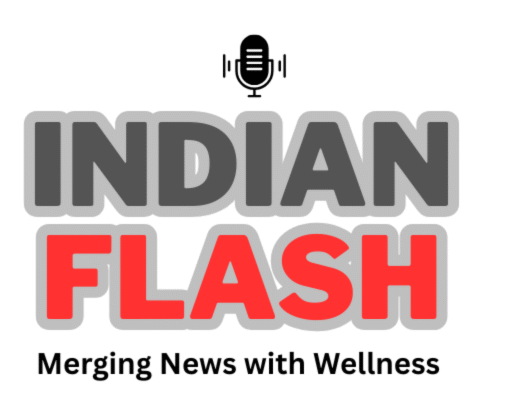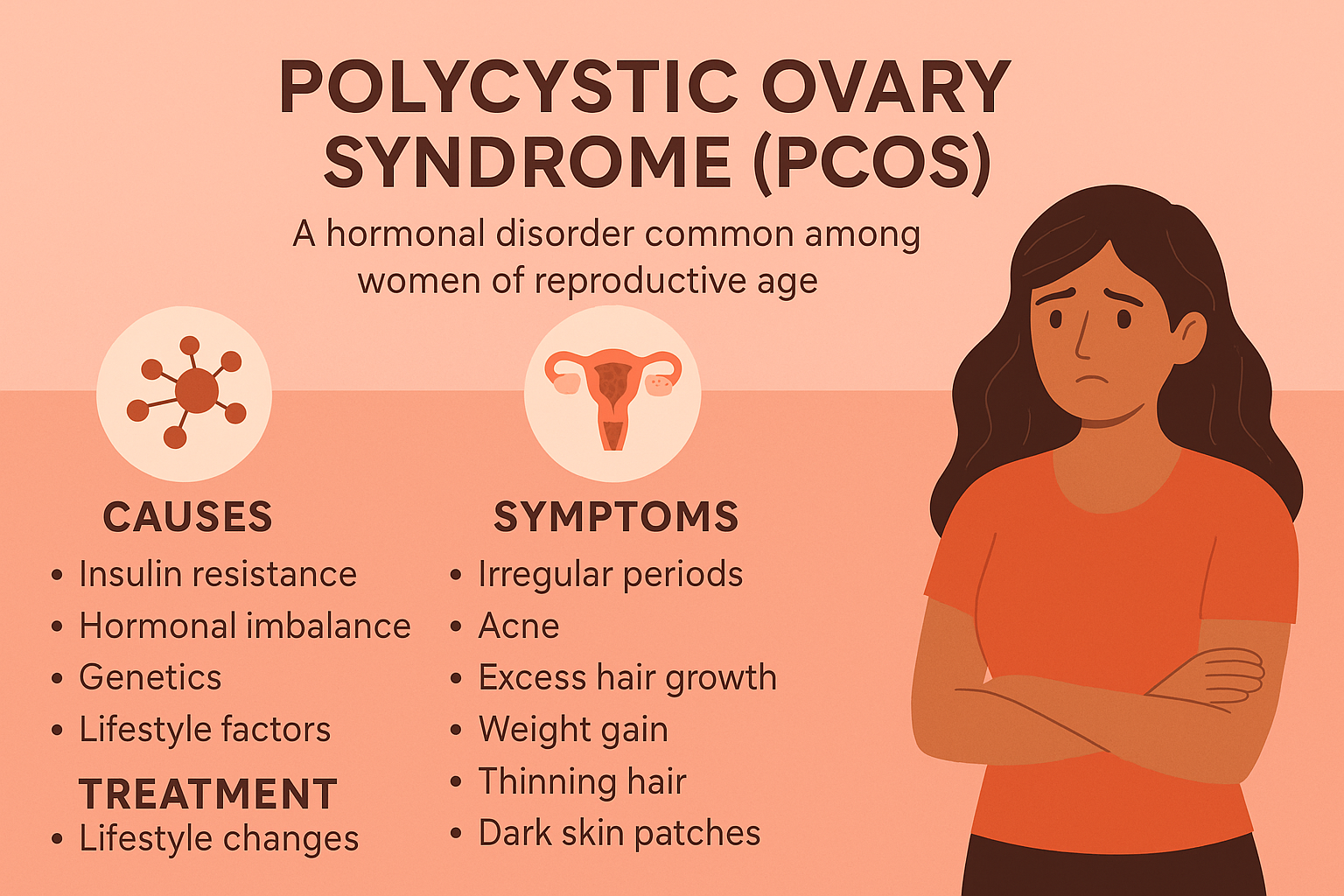Polycystic Ovary Syndrome (PCOS) is a complex hormonal disorder affecting millions of women globally, particularly during their reproductive years. In India, it has become increasingly common among teenage girls and young women, with estimates suggesting that 1 in 5 women suffer from PCOS. Despite its widespread prevalence, PCOS is often misunderstood or misdiagnosed.
🔬
What is PCOS?
PCOS is a hormonal imbalance that affects how a woman’s ovaries function. The name “polycystic” refers to the presence of multiple small cysts on the ovaries, although not all women with PCOS have cysts.
The three main features of PCOS are:
- Irregular or absent periods
- Excess androgen (male hormone) levels
- Polycystic ovaries seen on ultrasound
A diagnosis is typically made when at least two of these three signs are present.
⚠️
Causes of PCOS
While the exact cause is unknown, several contributing factors include:
1.
Insulin Resistance
- High insulin levels promote androgen production, which can interfere with ovulation.
- Up to 70% of women with PCOS have insulin resistance.
2.
Hormonal Imbalance
- Elevated androgens (testosterone) are common in PCOS.
- This causes symptoms like acne, facial hair, and male-pattern baldness.
3.
Genetics
- PCOS tends to run in families.
- If your mother or sister has PCOS, your risk is higher.
4.
Lifestyle Factors
- Poor diet, lack of exercise, and stress can worsen symptoms.
- Urban lifestyle changes in India are linked to increasing PCOS rates.
🚨
Common Symptoms of PCOS
PCOS symptoms vary but often include:
- Irregular menstrual cycles or missed periods
- Acne and oily skin
- Excess facial and body hair (hirsutism)
- Thinning hair or male-pattern baldness
- Weight gain or difficulty losing weight
- Dark patches on skin (acanthosis nigricans)
- Infertility or difficulty conceiving
- Mood swings, anxiety, and depression
🇮🇳
The Indian Scenario
PCOS is alarmingly common among Indian women, especially in metro cities like Mumbai, Delhi, Bengaluru, and Chennai. Factors contributing to this include:
- Sedentary lifestyles
- Junk food consumption
- Early onset of puberty
- Mental health issues like chronic stress
- Lack of awareness and delayed diagnosis
A study by AIIMS suggested that PCOS now affects 20–25% of Indian women of reproductive age.
🧪
Diagnosis
Doctors use a combination of the following to diagnose PCOS:
- Medical history & physical exam
- Pelvic ultrasound to detect cysts
- Blood tests to measure hormone levels, glucose, and cholesterol
💊
Treatment Options
While there is no permanent cure for PCOS, it can be managed effectively with lifestyle changes and medications.
1.
Lifestyle Changes (First Line of Treatment)
- Diet: Low-GI foods, less sugar, more fiber and protein
- Exercise: 30–45 mins of activity, 5 days a week
- Weight Management: Losing even 5–10% of body weight can regulate periods
2.
Medications
- Oral contraceptives: Regulate periods and reduce androgen levels
- Metformin: Improves insulin sensitivity
- Anti-androgens: Reduce facial hair and acne
- Fertility medications: Like Clomiphene or Letrozole for those trying to conceive
3.
Skin and Cosmetic Treatment
- Dermatological treatment for acne and hair
- Laser or electrolysis for hair removal
4.
Surgery (Rare Cases)
- Laparoscopic ovarian drilling (LOD) may be suggested in specific infertility cases
🧘♀️
Role of Ayurveda and Alternative Therapies
In India, many women seek relief through:
- Ayurveda: With herbs like Ashwagandha, Shatavari, and Triphala
- Yoga & Meditation: For hormonal balance and stress reduction
- Homeopathy and Unani: Though less evidence-based, they are culturally popular
🧠
Mental Health & PCOS
Women with PCOS are at a higher risk of:
- Depression
- Anxiety
- Body image issues
Mental health support, counseling, and community support groups are essential in holistic PCOS care.
👩⚕️
When to See a Doctor
Consult a gynecologist or endocrinologist if you experience:
- Irregular or missed periods
- Sudden weight gain
- Excess hair or hair loss
- Fertility issues
Early diagnosis and intervention can prevent long-term complications like:
- Type 2 diabetes
- Heart disease
- Endometrial cancer
- Infertility
📊
Outlook for Indian Women
Awareness around PCOS is improving, but many cases still go undiagnosed or untreated, especially in rural areas. School and college health programs, workplace wellness initiatives, and digital health platforms can play a key role in improving outcomes.
✅
Takeaway
PCOS is not just a reproductive disorder — it’s a full-body metabolic and hormonal condition. With early diagnosis, lifestyle management, and proper treatment, women with PCOS can lead healthy, fulfilling lives.




